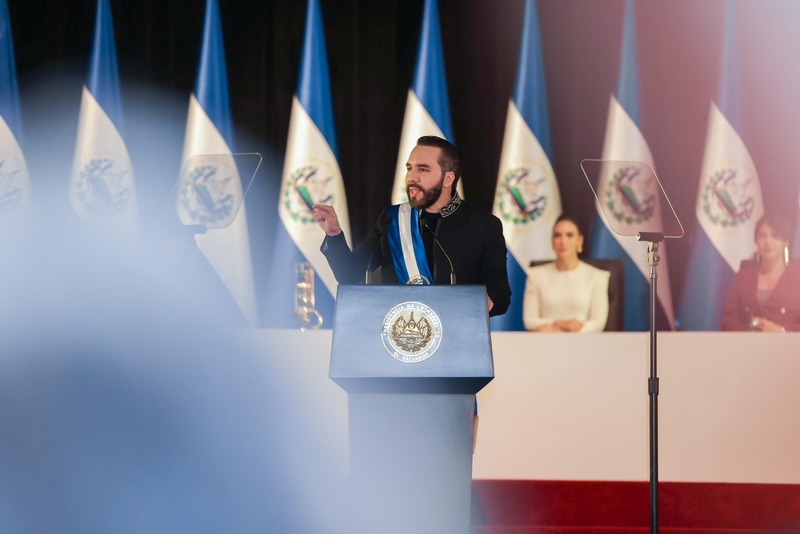Already a subscriber? Make sure to log into your account before viewing this content. You can access your account by hitting the “login” button on the top right corner. Still unable to see the content after signing in? Make sure your card on file is up-to-date.
El Salvador’s Congress has officially changed the nation’s constitution to eliminate presidential term limits and extend presidential terms.
Some shit you should know before you read: Since taking office in 2019, President Nayib Bukele has undoubtedly reshaped El Salvador’s internal security landscape through an aggressive crackdown on gang violence that has earned him widespread domestic support. Under his leadership, the country declared a state of emergency in 2022 that suspended key constitutional rights, enabling authorities to arrest tens of thousands of suspected gang members (an action credited with causing a sharp drop in homicide rates). This tough-on-crime approach has propelled Bukele’s approval ratings above 80%, making him one of the most popular leaders in Latin America. Despite his strong support, Bukele does have critics who point to arbitrary arrests, lack of due process, and raise concerns that Bukele has shown signs of authoritarianism by centralizing power in the name of security. Prior to recent constitutional changes, El Salvador’s top court (run by his supporters) ruled that Bukele could seek a second consecutive term, despite a clear constitutional ban on re-election at the time.

What’s going on now: In a notable development, El Salvador’s Congress approved a constitutional reform that eliminates presidential term limits, allowing the country’s leader to seek re-election indefinitely. The amendment also extends the length of presidential terms from five to six years and eliminates the need for a second-round run-off vote in presidential elections. Additionally, the reform shortens President Nayib Bukele’s current term by two years, moving the next election up from 2029 to 2027 in order to synchronize presidential, legislative, and municipal elections.
The reform was introduced by Ana Figueroa, a lawmaker from Bukele’s ruling New Ideas party, and passed quickly through Congress using an expedited legislative procedure. It was approved by a supermajority vote of 57 in favor and only three against (an outcome made possible by Bukele’s party and its allies holding roughly 90% of the seats in the Legislative Assembly).
Supporters of the changes argued that the change was only fair, as other public officials who run for office have already been held to the same standards, and it was only fair to grant it to the presidency. Opposition lawmakers, however, condemned the move as a grave threat to democratic governance in El Salvador. Marcela Villatoro of the Nationalist Republican Alliance (ARENA) said, “Democracy in El Salvador has died,” warning that indefinite re-election would “bring an accumulation of power and weakens democracy.” Claudia Ortiz of the Vamos party described the reform as “an abuse of power and a caricature of democracy.”
Critics also noted the timing and process of the vote (which was held abruptly, the day before a national holiday, and without public debate or consultation).
This all comes as President Bukele is expected to win re-election by a wide margin, continuing a trend of strong public support that has defined his presidency. In the 2024 election, Bukele secured a resounding victory with more than 84.6% of the vote, a reflection of his enduring popularity among Salvadorans, many of whom credit him with dramatically improving public safety. His approval ratings have consistently remained among the highest of any world leader, driven largely by his aggressive anti-gang policies and promises of national renewal.







